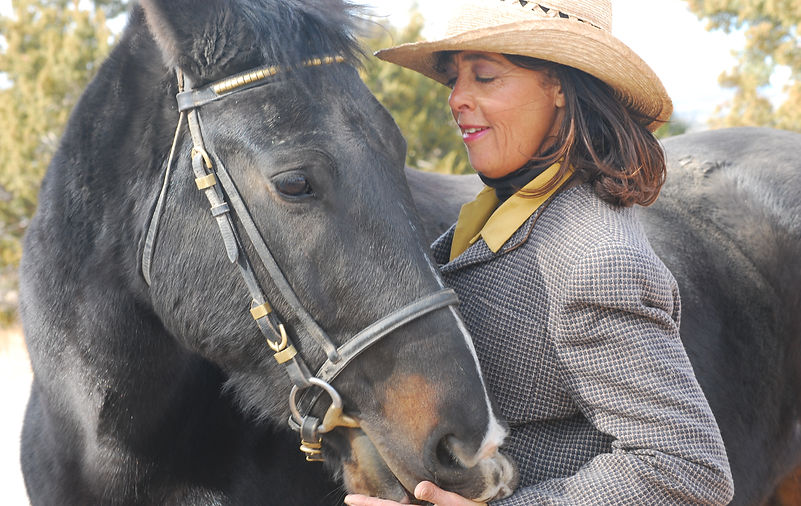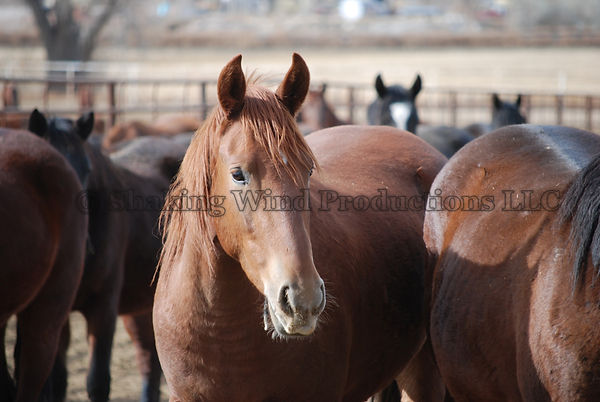
"We are like cats and dogs the way we love you."
--The Horses
WHY WILD HORSES MATTER

photo Nick Miller
OUR FRIENDS, COMPANIONS, AND HELPMATES.
HORSES & WILD HORSES
WHY WILD HORSES ARE IMPORTANT
Our Nation has a repetitive pattern of targeting a particular population for suppression,
abuse and subjugation. Hard fought civil rights have changed laws; however, equality is still far from reality for Native Americans, African Americans, women and persons with disabilities or special needs. Laws make certain policies illegal; however, unless laws are enforced, abuses continue until the hearts and voices of people rise up and insist on change.
Within society, wherever oppression remains, there is evidence of spiritual decay and corruption which will re-emerge. That is why --
IT TAKES COURAGE TO LOOK AT OUR PUBLIC POLICIES AND DISCOVER
THE TRUTH ABOUT WILD HORSES.
Wild horses are an indigenous species on the North American Continent, migrated to Asia when the land masses were connected and became extinct here due to climate change. They were re-introduced to North America by Spanish explorers.
An estimated two million free-roaming horses lived on public lands in 1971, when the United States Congress passed the Wild Horse & Burro Protection Act. The allocation of 54 million acres of Federal Lands for wild horse and burro habitat was intended as an intervention to stop the widespread capture and slaughter of wild horses that had become a lucrative business in the preceding decades. Although legally protected under federal law since that time, the U.S. Government's poorly managed and largely unsuccessful wild horse adoption program has become a front for sending tens of thousands of captive wild horses and burros to slaughter every year -- for personal profit of ranchers and Bureau of Land Management cronies.
Two million wild horses roamed on public lands in 1971: fewer than 15,000 exist on federal lands today. Wild horses have been misrepresented as dangerous, violent, worthless and untrainable to discourage public interest in adoption. These horses are, in fact, good-minded, talented, intelligent, and beautiful equines capable of great athleticism, loyalty and friendship. They make excellent therapy animals and companions for women and children.
Removal and execution of our wild horses continues for personal profit in a scheme that redirects public funds, for caring for wild horses on public lands, into grazing contracts which place wild horses on private lands so that public lands can be leased to cattle and livestock interests at low cost. While ranchers reap millions each year to "graze" wild horses, they are fattened up and shipped, without documentation, to slaughter for personal profit. This is going on right now, in the United States of America, and has gone on for decades.
WILD HORSE STEWARDSHIP COMMUNITY
Contrary to what we have been told, wild horses are nice horses. They are beautiful, intelligent and athletic. Treated kindly and respectfully, they are friendly, kind, and willing collaborators with humans and other species. In the wild, with adequate forage, natural windbreak for shelter and sufficient water resources, wild horses are self-sufficient without human engagement. Responsibly managed and respectfully treated, wild horses are collaborators for the good of the environment, the economy, and both horse and human communities. Only when human interference places constraints on their natural habitat and grazing patterns, is there risk of overgrazing.
The longstanding relationship between residents of Chincoteague Island, Virginia, and wild horses of Assateague Island is a dramatic contrast to the violent ways of wild horse management in the Western United States. In captivity, wild horses need us to help them acclimate to human environments and ways. Many are recovering from the trauma and abuse from which they have suffered in captivity. However, they are loyal and intelligent, and they respond positively to kindness, consistency, and fairness.
Wild Horses are the foundation from all domestic breeds originating in North America, including the Quarter Horse, Appaloosa, Tennessee Walking Horse, Rocky Mountain, Morgan and Gaited Horses.
Genetic variations in stallions of domesticated breeds have been lost. The only variations in genetics among stallions worldwide are found within wild horses.
Unlike cattle, which stand in one place to graze, horses snack and walk. Horses roam over large areas, reseeding the grasslands and ensure the health of grasslands. Prevalent use of antibiotics and steroids in management of cattle depletes the soil, whereas free-roaming horses
help to restore and renew the wildlands.
Perhaps most importantly, they remember how to live in a collaborative community. From the social structure of wild horses, our communities and our cultures can find a role model and mitigate the imbalances of power, gender relations, and restructure our society into a collaborative community which lives in cooperative agreement for the common good. If we learn this from wild horses, we, too, can survive.
The opportunity to live around wild horses is a rare and powerful experience which transforms our lives and our perspective of ourselves and other species. Integrating wild horses into our open spaces brings us into right relationship with the natural world and ourselves.
Integrating wild horses in to our communities offers an alternative to overuse of fossil fuels, an intervention for at-risk youth, healthful, recreation, therapeutic intervention for violence and addictions, and provides effective management for our open spaces.
Perhaps most importantly, wild horses teach us to live in harmlessness, integrity and peace.
